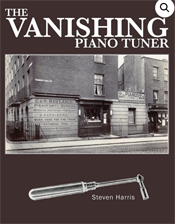Did You Know Piano Facts
Muzio Clementi
Muzio Clementi 23 January 1752 to 10 March 1832 was an Italian-born British composer, pianist, pedagogue, conductor, music publisher, editor, and piano manufacturer. who was the son of a silversmith? the piano firm Clementi eventually became Collard and Collard.
He was encouraged to study music by his father, Muzio was sponsored as a young composer by Sir Peter Beckford who brought him to England to advance his studies in music. Later, he toured Europe numerous times from his long-standing base in London. It was on one of these occasions, in 1781, that he engaged in a piano competition with Wolfgang Amadeus Mozart. Clementi published a highly respected piano method which even Beethoven endorsed him, sending pupils along to Clementi.



